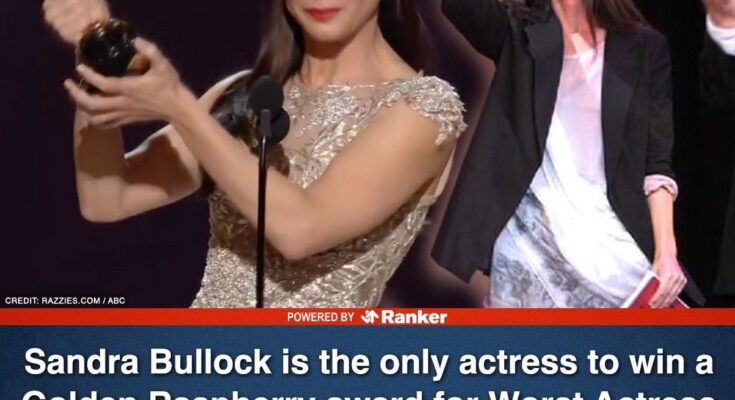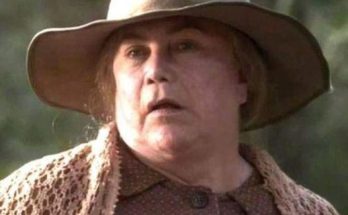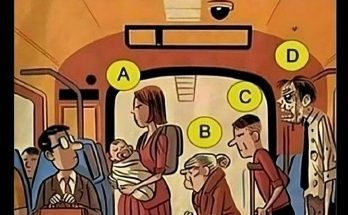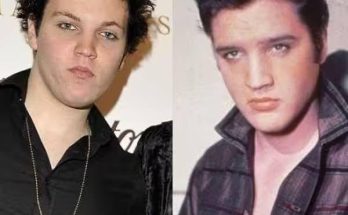Not every movie an actor makes can win Oscar gold. Often, Hollywood performers agree to star in cheesy blockbusters with broad commercial appeal because of the potential box office payoff. That’s one reason why an actor sometimes turns in an Oscar-winning performance in one movie and a cringeworthy effort in another within the span of one year.
Here are some examples of A-list actors who have won the Oscar for best actor or actress the same year they starred in horrible movies that offended critics and audiences alike.
Jamie Foxx, 2004: ‘Ray’ And ‘Breakin’ All the Rules’
In 2004, Jamie Foxx won the best actor award for his portrayal of singer and composer Ray Charles in Ray, and was nominated for best supporting actor for Collateral. But the same year Foxx made these two career-making films, he also ended up in a stinker of a romance: Breakin’ All the Rules.
Not every movie has to be tear-jerking Oscar bait, but Breakin’ All the Rules was worse than just bad – it was bad and complicated. The plot, which revolves around an editor who turns his pain at being dumped into a bestselling book, subjects viewers to new twists and characters again and again, then fails to deliver much of a resolution. According to The Washington Post‘s Michael O’Sullivan: “No movie this stupid should need a plot synopsis this complicated.”
Sandra Bullock, 2009: ‘The Blind Side’ And ‘All About Steve’
Not everybody is a fan of The Blind Side, the 2009 drama about a future NFL lineman who’s encouraged by his adoptive parents to pursue his dreams. Still, Sandra Bullock won the Oscar for best actress for her starring role in the sentimental sports movie. The award opened doors for Bullock, allowing her to escape the world of rom-coms – but not before starring in All About Steve.
Unlike Miss Congeniality, another Bullock film, All About Steve is a Bullock-led comedy few people have fond memories of. It’s the story of a quirky woman who becomes obsessed with a cable news cameraman (Bradley Cooper) and begins chasing him as his news team travels across the country. The movie was panned by critics as tonally challenged, playing up the relationship between a deranged stalker and the subject of her obsession for uncomfortable laughs. Although most of Bullock’s supporters will no doubt defend her Oscar-winning picture, as one critic wrote, All About Steve is “destined to disappoint even the most diehard of Bullock fans.”
Gwyneth Paltrow, 1998: ‘Shakespeare in Love’ And ‘Hush’
Shakespeare in Love swept the 1999 Oscars, taking home honors for best picture, best actor (Geoffrey Rush), and best actress for Gwyneth Paltrow. It was a career hallmark for Paltrow, who hadn’t yet been nominated for an Oscar, but had turned in terrific performances in films like The Talented Mr. Ripley, Emma, and Sliding Doors. That’s why Hush was an unfortunately timed step backward in her career, coming out the same year as Shakespeare in Love.
Hush, a dumbed-down rehashing of every Southern Gothic trope, largely existed to let Jessica Lange chew the scenery as an obsessed mother trying to snuff out her daughter-in-law. Paltrow didn’t earn the same criticism as Lange, who was nominated for a Razzie Award for worst actress. Still, it can’t feel good to be in a movie that USA Today called “recycled junk” and “total trash” the same year Paltrow won movie-acting’s highest honor.
Colin Firth, 2010: ‘The King’s Speech’ And ‘Main Street’
Few can forget Colin Firth’s Oscar-winning turn as King George VI in The King’s Speech, which depicts the newly crowned monarch’s struggle to overcome his speech impediment ahead of a historic speech declaring war on Germany in 1939. But almost everyone has forgotten another film Firth starred in the same year: Main Street, a drama that combined a phenomenal cast with an exceptional screenwriter to create something completely ordinary.
Main Street was written by Horton Foote, the Pulitzer Prize-winning screenwriter of To Kill a Mockingbird and Tender Mercies, after the playwright visited Durham, NC, and found it depressingly empty. The movie makes the implicit insult of the city personal by actually setting the story in Durham, where a newcomer played by Firth brings an unorthodox plan to revitalize the city. Also starring Orlando Bloom, Ellen Burstyn, and Amber Tamblyn, the movie was panned by critics. Variety wrote that Main Street suffered from “uneven performances, flat direction, and an overall sense of narrative arbitrariness.”
Sean Penn, 2008: ‘Milk’ And ‘What Just Happened’
Sean Penn’s portrayal of Harvey Milk, the first openly gay politician to be elected to public office in California, was exactly the role the actor needed to win his second Academy Award for best actor, five years after his first win for Mystic River. That same year, he turned in another performance, as himself, in the Robert De Niro-fronted satire What Just Happened. The movie might not have looked like a stinker on paper to Penn when he first read the screenplay, but the eventual product ended up being an embarrassing footnote to an otherwise impressive year of his career.
In What Just Happened, De Niro plays a movie producer tasked with retooling a film that stars Penn. High-minded parodies about the inside politics of Hollywood are often beloved by critics and others inside the film industry, even if they don’t always make tons of money at the box office. Criticized by reviewers for being “artistically disjointed and lacking in courage,” this satire ended up pleasing nobody.
Jeff Bridges, 2009: ‘Crazy Heart’ And ‘The Open Road’
In 2009, Jeff Bridges played a deadbeat dad in two movies: Crazy Heart and The Open Road. One of those movies won Bridges the Oscar for best actor. The other… took some wrong turns.
The Open Road casts Bridges as a washed-up former baseball pro, as opposed to the washed-up country star he plays in Crazy Heart. But where Crazy Heart embraced the prickliness of confronting the past, The Open Road is a sentimental, by-the-numbers story about a father and son who set aside their differences to repair their relationship. Reviewers noted that Bridges, Justin Timberlake, Kate Mara, Harry Dean Stanton, and Mary Steenburgen put in admirable performances, but the cast failed to fight off the film’s “movie-of-the-week vibe.”
Jennifer Lawrence, 2012: ‘Silver Linings Playbook’ And ‘House at the End of the Street’
Jennifer Lawrence was already a household name in 2012 thanks to the Hunger Games movies, but Silver Linings Playbook made it clear she was capable of more than just action-adventure flicks. Starring alongside Bradley Cooper and Robert De Niro, Lawrence turned heads as a young widow struggling with her mental health. That same year, however, critics were turning up their nose at a horror movie that also starred Lawrence.
House at the End of the Street lives up to its boring name, according to critics, who said the movie delivers zero excitement, thrills, or chills. Though Lawrence gets credit for “elevat[ing] subpar material,” the movie as a whole was slammed by the The New York Times for being “a choppily edited, poorly timed mess.” Despite the bad reviews, the movie ended up making a decent amount of money, grossing $44 million for a film that cost around $10 million to produce.
Russell Crowe, 2000: ‘Gladiator’ And ‘Proof of Life’
Gladiator wowed both the Academy and audiences with an action-packed, accessible story that still offered plenty of opportunities for its actors to shine. Proof of Life was an action movie with a serious, ripped-from-the-headlines premise, meaning it, too, had the potential to be appealing to critics and moviegoers.
In Proof of Life, Crowe stars as an American engineer who is captured and held for ransom by anti-government forces in a South American country. The thriller, with Meg Ryan playing Crowe’s wife, was dismissed by critics as poorly written and unoriginal. “Neither Crowe, Ryan, nor the topical subject keeps Proof of Life from feeling recycled,” wrote David Ansen at Newsweek.
That year, Crowe proved not every movie splits reviewers and viewers – some please both, and others please neither.
Reese Witherspoon, 2005: ‘Walk the Line’ And ‘Just Like Heaven’
Reese Witherspoon was well-known before 2005 thanks to the commercial success of Legally Blonde, but her performance as June Carter Cash in Walk the Line established both Witherspoon and her co-star Joaquin Phoenix as serious dramatic actors. Because the actor was in the middle of a transitional period of her career, it’s perhaps not surprising she also made a bland romantic comedy that same year.
The success of Legally Blonde and Sweet Home Alabama were good enough reason for Witherspoon to sign on to Just Like Heaven. But the script, which stars Mark Ruffalo as a widower who falls in love with a ghost played by Witherspoon, should have given her pause. The movie got plenty of bad press from reviewers who criticized its “sentimental pap,” but it wasn’t without sympathizers: Richard Roeper argued that “it’s corny, it’s somewhat predictable, but it’s also very sweet.”
Gary Oldman, 2017: ‘Darkest Hour’ And ‘The Hitman’s Bodyguard’
Gary Oldman won his Academy Award for best actor playing Winston Churchill in Darkest Hour. The historical drama put Oldman in some very cumbersome prosthetic makeup to play Churchill at the beginning of his term as prime minister at the start of WWII – a weighty, serious role. That same year, however, Oldman took on a retread of a role he’d made waves for earlier in his career: that of an Eastern European bad guy.
The Hitman’s Bodyguard was derided by critics as an excuse to watch Ryan Reynolds and Samuel L. Jackson deliver quick, witty banter to one another – everything else in the movie is poorly written and crass. Oldman was likely cast as the movie’s villain, a Belarusian dictator, because of his success in playing a Kazakh terrorist in Air Force One.
He balanced out a major step forward in his career with an unoriginal step backward, but it doesn’t appear to have hurt his career: The actor was nominated for best actor again thanks to his starring role in 2020’s Mank.
Kathy Bates, 1990: ‘Misery’ And ‘Dick Tracy’
Kathy Bates took on an unforgettable, career-making role in Rob Reiner’s Misery, an adaptation of the novel by Stephen King. For her performance as Anne Wilkes, Bates took home the Oscar for best actress at the 1991 Academy Awards. But that same year, Bates was also part of the cast of Dick Tracy, a blockbuster comic book adaptation released on the heels of Batman. Though the movie, directed and produced by star Warren Beatty, was hyped by a tremendous marketing campaign, it ended up disappointing both at the box office and among reviewers.
Dick Tracy gave a big-screen incarnation to the pulpy comic character of the same name, featuring big names like Al Pacino, Madonna, Dustin Hoffman, and Dick Van Dyke. Despite all that, it was painted by critics as a lot of flash without substance. Gene Siskel wrote about the gap between the movie’s impressive (and expensive) special effects and its lackluster story, calling it “a visual delight and a dramatic letdown.”
Julianne Moore, 2014: ‘Still Alice’ And ‘Non-Stop’
Julianne Moore earned the Academy Award for best actress for playing a linguistics professor living with early-onset Alzheimer’s disease in the devastating 2014 drama Still Alice. It was also the year of Non-Stop, a more regrettable pit stop in her acting career that’s not about the loss of memory, but still manages to be entirely forgettable.
Non-Stop stars Liam Neeson as an air marshal charged with stopping a terrorist on a transatlantic flight who threatens to eliminate a passenger every hour he doesn’t receive a ransom payment. It’s one of Neeson’s many attempts to recapture the success of Taken, the movie that made him an unlikely action star in 2008. Unfortunately, Non-Stop wasn’t nearly the same kind of game changer for Neeson, and certainly not for Moore – one critic said the movie made “Snakes on a Plane look like plausible drama.”















